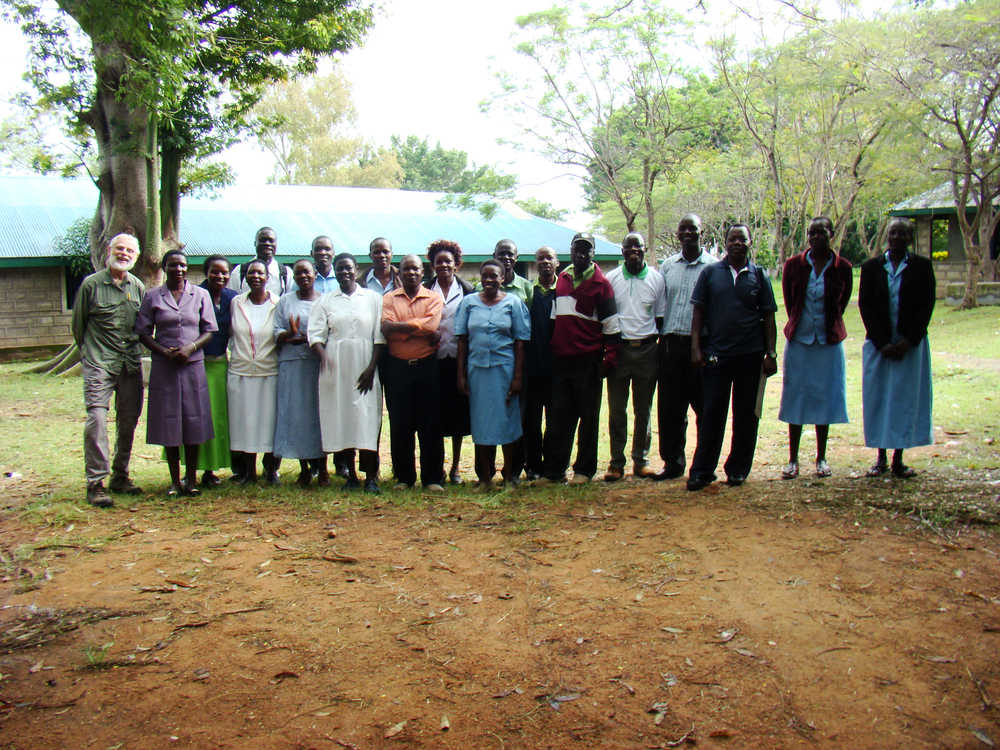At Christmastime, there is heightened interest in the plight of others whose circumstances are less fortunate than our own. Mid-winter holidays are a time when people are called upon to nurture each other.
In addition to opportunities to help others at home in Alaska’s capital city, many Juneau residents derive meaning and a sense of well-being from helping people far away.
About 10 years ago my parents, carolyn and George Brown, both of whom are physicians, put life in Juneau on hold and moved halfway around the world to East Africa to volunteer in Matoso, a small village in Kenya’s southwest corner. On the shores of Lake Victoria, a decade ago my parents’ new home had very limited infrastructure, and we could contact each other only intermittently, as telephone and computer connections were nearly non-existent and unreliable when available.
Despite being cut off from communicating for long periods, when I did hear from them they relayed their challenging daily lives, and the important and life-changing work they were doing. A tremendous blight on life in Matoso was the scourge of HIV and AIDS, which was not yet being treated by antiretroviral drugs and which was not being dealt with appropriately as a public health problem due to social and religious impediments to accepting how the disease was spread and how the needless transmission could be stopped.
My parents went a great distance to educate sick people about medicine and behaviors that could save their lives, and administered treatments to many people in need. They empowered the Kenyans by promoting safe sex, a challenge given the conservative society in which they were operating. They came to see a community that really benefited from their efforts.
When my parents returned to Juneau from Matoso, they didn’t leave the people they had met and the community they had served behind. They came up with a way through the nonprofit corporation under which they had practiced medicine in Alaska for decades, to continue to make life better in one little corner of East Africa. The Alaska-Kenya Health Scholarship Program is run on a modest endowment here in Alaska that supports the medical education of several young Kenyans each year. A local committee in Kenya’s Migori County receives applications from students who have completed secondary school and allow those chosen to pursue four-year diplomas in an array of health-related fields.
My parents had returned to Kenya a few times since leaving there a decade ago to check on the program, to see the students the scholarships had supported and how they were getting on with their lives and medical careers. A few years ago they asked me if I would serve on the board of directors here in Alaska that oversees the program. The only way such a program can work is with the right people working diligently and well on the ground at two places, each halfway around the globe. The Kenya Committee chooses worthy students, who go on to attend and do well at their various academies.
My father and I went to Matoso this month, and I was transformed by the experience of seeing where they had lived for two years, meeting so many people whose names I had only heard, and living life briefly in southwestern Kenya. Before going it all existed for my only abstractly, and I had no sense of what the students’ lives were like. Much has changed since my parents lived there, and it is immensely easier to stay in touch with Alaska. The HIV/AIDS epidemic is being actively managed, if not fully controlled, but the level of awareness of how to stay healthy is at least as advanced in the U.S.
In going to Kenya three things needed to happen for the Alaska-Kenya Health Scholarship Program: to strengthen the committee by restructuring and adopting new bylaws, to visit five of the schools where the students attend, and to increase our mutual understanding. We are accomplishing all three.
It was a delight meeting students currently studying through scholarships, alumni who now are practicing nurses and pharmacists, or going on to take full medical degrees (on their own and not with an AKHSP scholarship, at least not yet) while leading productive lives gainfully employed in a rewarding field.
I look forward to continuing to work with both my parents and the rest of the Alaskans and Kenyans who are part of this team effort to get more young people educated so they can help keep others healthy while supporting their families.
To learn more about the Alaska-Kenyan Health Scholarship Program, contact the Browns at 364-2726. To make a donation to help fund scholarships in Kenya, mail to 1640 Second Street, Douglas, AK 99824.
• Ben Brown is an attorney who lives in Juneau.

